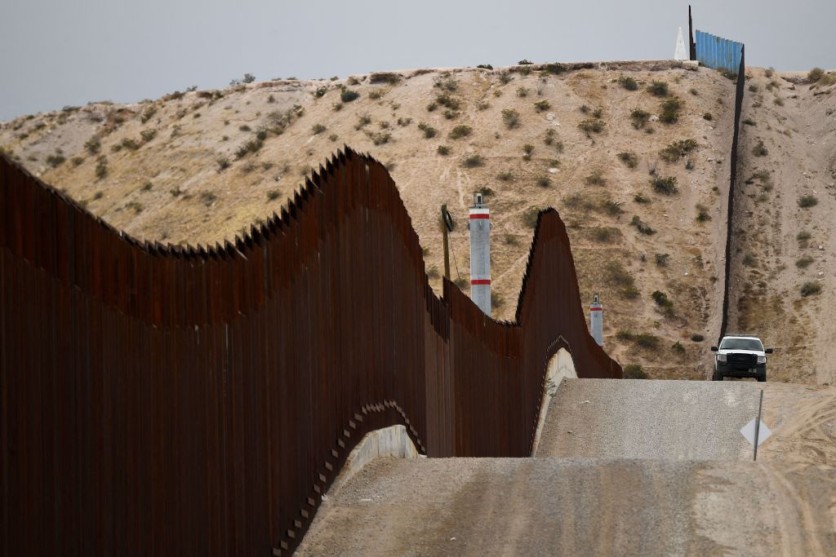United States' border agents can now only check a person's cell phone, or any electronic device, if they have a warrant, as ruled by a federal district court in New York.
As reported by Tech Crunch, the most recent court decision on July 24 has challenged the U.S. government's established belief that federal border agents can search travelers' devices at ports of entry, such as airports, seaports, and land borders, without a warrant from a court.

(Photo : PATRICK T. FALLON/AFP via Getty Images)
TOPSHOT - A US Border Patrol vehicle sits next to a border wall in the El Paso Sector along the US-Mexico border between New Mexico and Chihuahua state on December 9, 2021 in Sunland Park, New Mexico.
The judgment was praised by civil liberties groups who supported the ruling. According to Scott Wilkens, a senior counsel at the Knight First Amendment Institute, the court's decision emphasizes that border agents must have a warrant to access what the Supreme Court has termed 'a view into an individual's life.'
The decision of the district court applies to all of the U.S. Eastern District of New York, encompassing major airports in the New York City area such as John F. Kennedy International Airport, a prominent transportation hub in the country.
A representative from CBP, the department in charge of protecting the borders, did not reply to a comment request after normal working hours.
Read Also : US Army Picks Kopin to Develop Novel See-Through AR Display Optics for Dismounted Soldier Vision Systems
Cases Surrounding the Ruling
The court decision pertains to a criminal case where Kurbonali Sultanov, a U.S. national, had his phone confiscated by border officers at JFK Airport in 2022 and was compelled to give his password after being informed by officers that he had no alternative.
Sultanov later attempted to prevent the use of evidence - believed to be child sexual abuse material - obtained from his phone by claiming that the search infringed upon his Fourth Amendment rights.
The area of the U.S. border is a gray area in terms of legality, where foreign visitors have little privacy rights and Americans can also undergo invasive inspections. The U.S. government has special abilities at the border, like being able to search devices without a warrant, unlike law enforcement's regular powers for individuals who have entered U.S. soil without proving enough suspicion to a judge for the search.
Critics have long contended that these searches are unconstitutional and infringe upon the Fourth Amendment, which safeguards against unjustified searches and confiscations of an individual's electronic devices.
In this legal decision, the judge partly based their decision on an amicus brief filed in support of the defendant. The brief argued that unjustified border searches also violate the First Amendment by creating a high risk of chilling press activities and journalists at the border.
The judge warned that if the court had agreed with the government's stance that no suspicion is needed for device searches at the border, anyone linked to political dissent could be at risk of the government accessing their private information after just one trip through an international airport, as stated in a previous U.S. Supreme Court decision on cell phone privacy.
AI in the DHS
The decision was made shortly after the DHS explored using artificial intelligence to mimic refugees during training interviews for immigration officers, as confirmed by Secretary Alejandro Mayorkas.
An attempt to assist officers in better decision-making when assessing refugee status applications through training. Mayorkas states that the initiative addresses labor-intensive training typically involving senior staff members. He said that the Department of Homeland Security is teaching robots to act like refugees in a test program, allowing officers to practice questioning them.
The department specifically stated that United States Citizenship and Immigration Services, an agency within DHS, will create an AI program to personalize training materials for officers and help improve the accuracy of their decisions.
Sources say AI will not make independent decisions on immigration, but Mayorkas states AI will help officers by recognizing conditions specific to each country and other pertinent information.
Related Article : China Hits Back Sanctions with Military Hardware Export Curbs Targeting Western Nations





